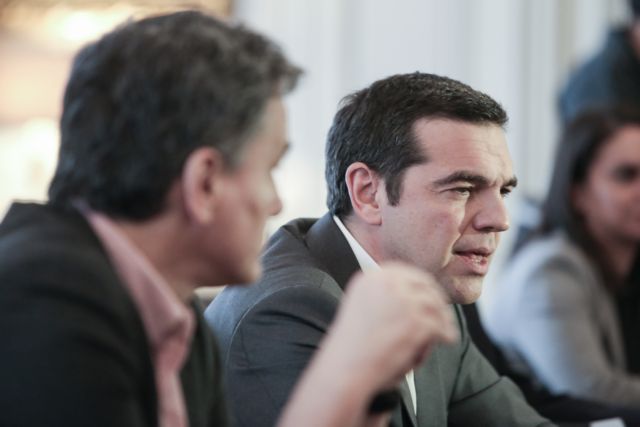When Deputy Labour Minister Tasos Petropoulos announced the prospect of handing out an Easter bonus to pensioners and civil servants (holiday bonuses were abolished by the bailout memorandums), Finance Minister Euclid Tsakalotos to hastened to nip the idea in the bud.
Those in the know say that the incident reflects different and conflicting perceptions of the PM’s advisors and Tsakalotos on how the government should deal with creditors on the way to the general election and whether it can unilaterally decide on distributing social benefits and handouts.
Such a move, which would create a precedent on cases pending before the Council of State on whether the abolition of holiday bonuses (which were essentially factored in to the annual labour cost) were constitutional, was not the bright idea of the experienced minister.
His statement was essentially a trial balloon, which reflected the objective of Prime Minister Alexis Tsipras’ inner circle of advisors (including ministers Dimitris Tzanakopoulos, Nikos Pappas, and Alekos Flambouraris) to exhibit the “social face” of the government by resorting to unilateral actions.
Essentially, the PM’s team is entertaining the idea of small, manageable clashes with creditors that can be easily resolved with a minor governmental retreat.
Such moves are designed to bolster the government’s narrative that in the post-bailout era it can meet the fiscal targets agreed to with creditors any way it likes, and that it is prepared – despite the bitter experience of 2015 when Greece teetered on the edge of Grexit – to clash with creditors (who are responsible for the long-term enhanced surveillance of the Greek economy) in defence of the interests of the poor and vulnerable.
Tsakalotos insists commitments must be met
Tsakalotos, on the other hand, remains unswervingly dedicated to meeting all of Greece’s commitments to creditors so that Athens can achieve even a limited reduction of the huge national debt and continue its efforts to gradually return to borrowing from the markets.
He believes that a successful fiscal course will offer the necessary space for growth and social policies.
Though Tsakalotos is in principle and ideologically opposed to bailout memorandum policies, he believes that once the country undertook the obligation to implement them, it should do so in order to exit the enhanced surveillance as soon as possible and to focus on a homegrown development programme.
Tsakalotos’ stance has rendered him a credible and trustworthy interlocutor of Greece’s creditors.
That, however, has put him at loggerheads with the maximalist positions on foreclosure protection of Flambouraris , the avuncular civil engineer, contractor, and friend of Tsipras’ late father whom the PM entrusted with issues pertaining to the banking system.
.
.



